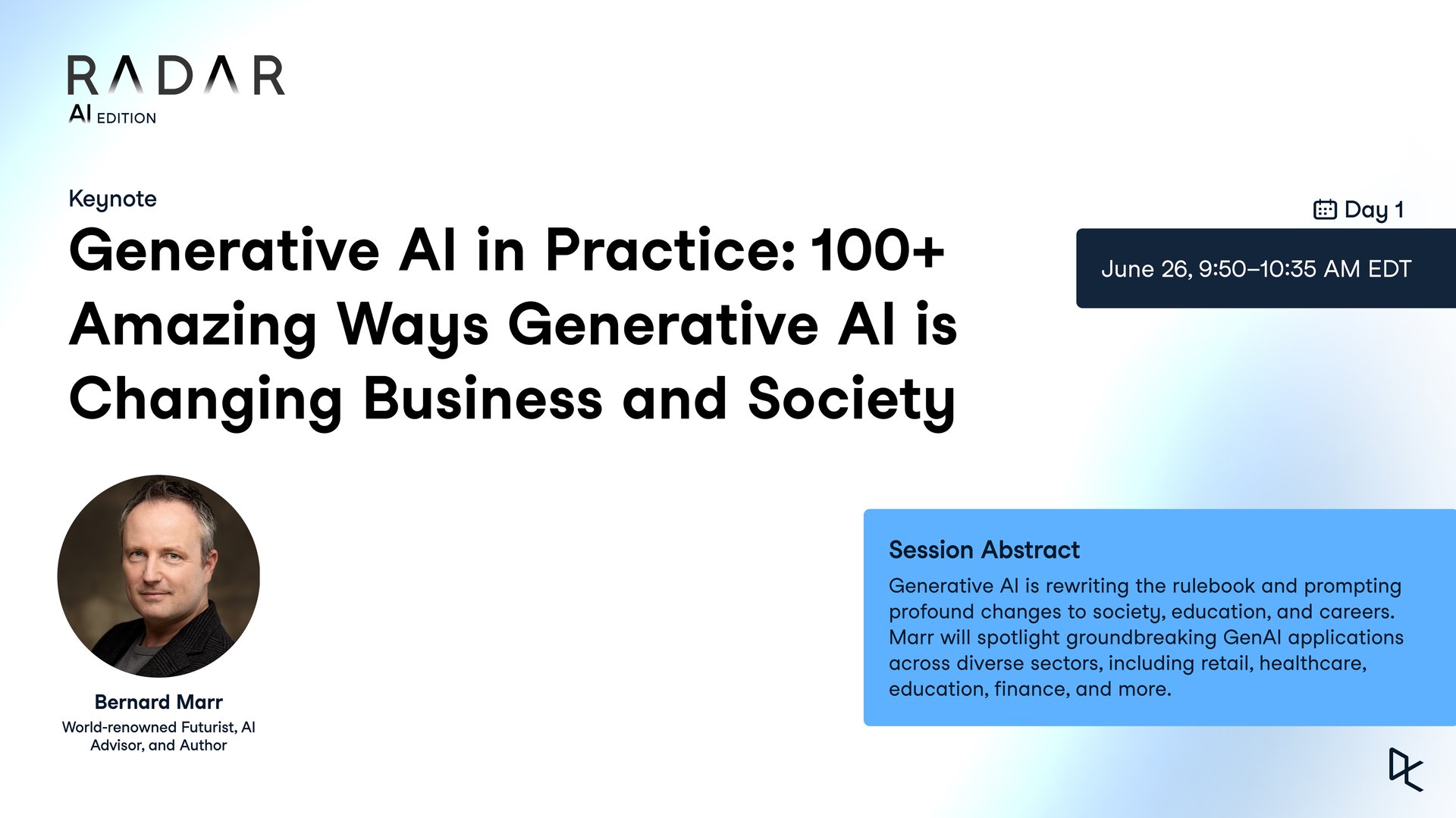Skip to main contentFor Business





Speakers
Training 2 or more people?
Get your team access to the full DataCamp library, with centralized reporting, assignments, projects and moreRelated
webinar
Generative AI: Trends, Impact, and Practical Applications for 2024
Deep dive into significant trends and developments within Generative AI as we near the middle of 2024.webinar
Demystifying AI: Unpacking the Generative AI Landscape
Join experts from leading venture capital firms to discover the latest business and data science use cases of generative AI.webinar
Charting the Path: What the Future Holds for Generative AI
Explore how generative AI tools & technologies will evolve in the months and years to come and navigate through emerging trends, potential breakthrough applications, and the strategic implications for business.webinar
Laying the Foundations: Scoping Generative AI Use Cases from Vision to Business Impact
In this session, Albert Esplugas provides a comprehensive overview of the top generative AI use cases across business areas and industries.webinar
Radar Data & AI Literacy Edition: Laying the Foundations: Scoping Generative AI Use Cases from Vision to Business Impact
In this session, Albert Esplugas provides a comprehensive overview of the top generative AI use cases across business areas and industries.webinar
Best Practices for Developing Generative AI Products
In this webinar, you'll learn about the most important business use cases for AI assistants, how to adopt and manage AI assistants, and how to ensure data privacy and security while using AI assistants.Join 5000+ companies and 80% of the Fortune 1000 who use DataCamp to upskill their teams.
Loved by thousands of companies

